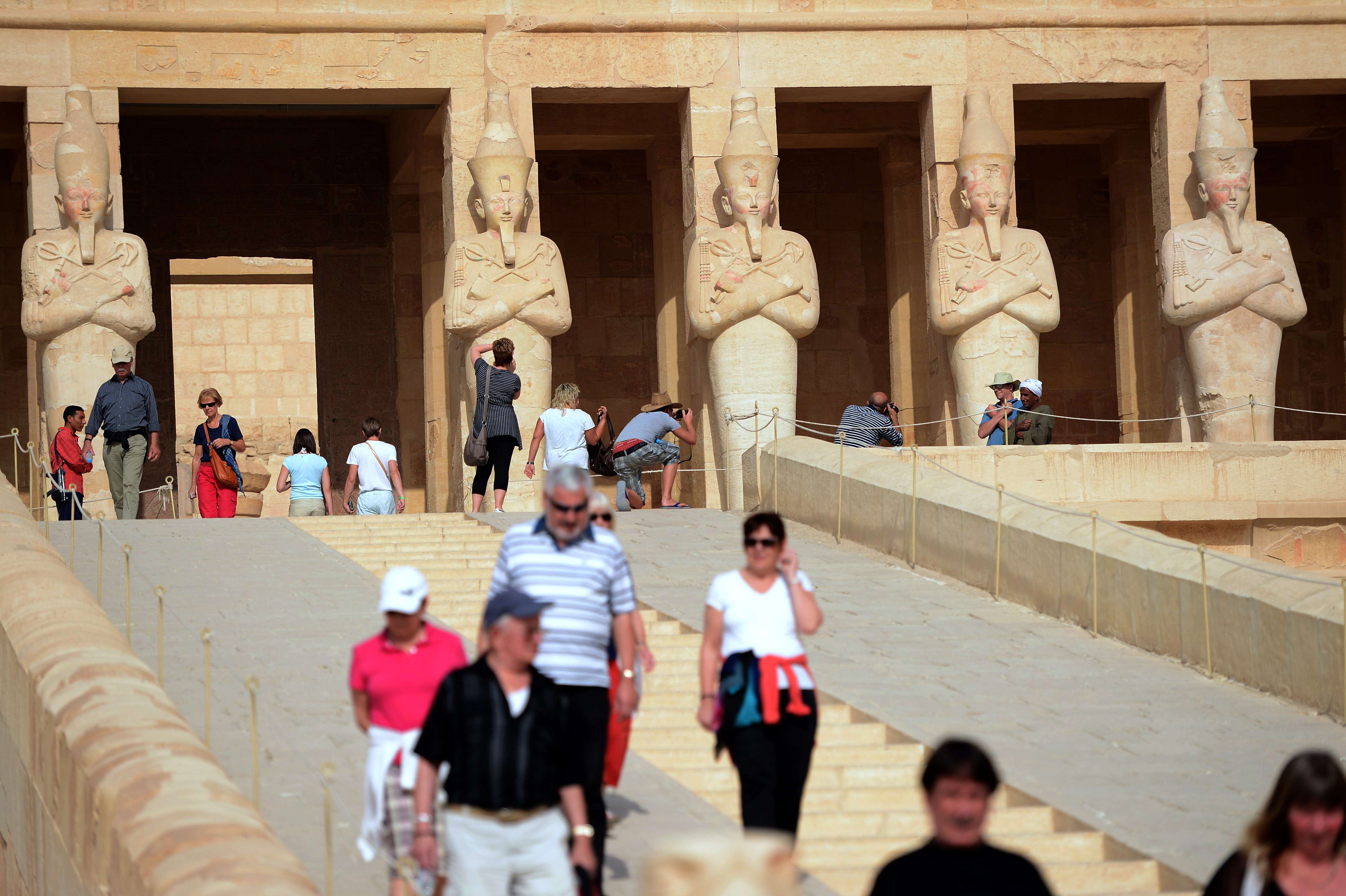
(AFP FILE PHOTO / KHALED DESOUKI)
Tourist spending in Egypt increased during the second half of this year to $73 per person per night, according to Economic Advisor to the Minister of Tourism Adela Ragab.
The latest figure represents a 15.8% growth rate, compared to $63 per person per night for the same period last year.
Ragab said that tourist arrival indicators during the third quarter of this year witnessed significant growth of over 70% compared to the same period last year. Egypt experienced huge turmoil, protests, and violence on the streets during the third quarter of 2013, after the military’s ousting of president Mohamed Morsi in July 2013.
Regab said: “The Ministry of Tourism has made great efforts this year to restore Arab tourism, especially from the Gulf States, and tourism programmes for tourists from Kuwait, Saudi Arabia, and Jordan have been launched, helping to increase arrivals during the summer season.”
The Ministry of Tourism hopes for tourism revenues to reach $7bn this year compared to $5.9bn in 2013, according to press statements made by Tourism Minister Hisham Zaazou.
The Egyptian Hotels Association Deputy Chairman Hany Al-Shaer said that the Red Sea areas are better off than Cairo, Luxor, and Aswan, adding that occupancy rates in some Red Sea resorts currently exceed 60%.
Chairman of the Egyptian Travel Agents Association (ETTA) in Upper Egypt Tharwat Al-Agamy said that occupancy rates in Luxor and Aswan currently stand at 20%.
Luxor and Aswan are two of the worst affected areas for tourism over the last four years, according to Al-Agamy.
Cruise occupancies are currently at 15% and are expected to increase after the New Year holiday, according to Vice Chairman of the Association of Tourism Investors Abdelrahman Al-Anwar.



